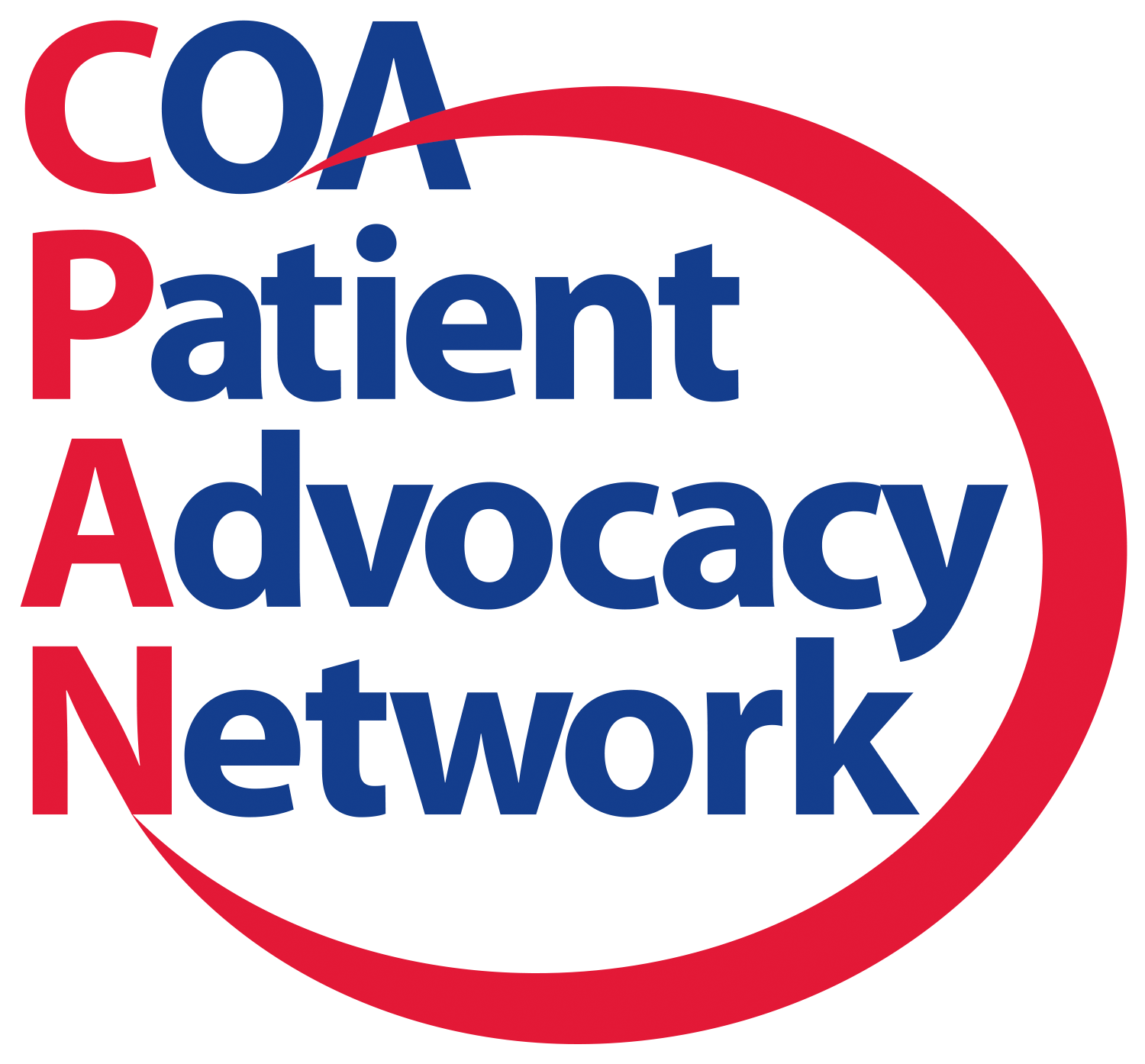December 2024 - COA Patient Advocacy Network News Bulletin

Topic: December 2024 - COA Patient Advocacy Network News Bulletin
Date: 12/5/2024
Advocacy Chats - Educational Conversations on Cancer Policy and Advocacy Issues
Be sure to catch up on all Advocacy Chat sessions about health equity, Sit In My Chairvisits, pharmacy benefit managers, 2024 Advocacy Highlights, and more. Rose Gerber, MS, COA director of patient advocacy and education, and guests explore ways for advocates to advance cancer care.
Empower & Advocate: Save the Date for the 2025 Community Oncology Conference
When community oncology comes together, it creates a stronger future for independent cancer care. Don’t miss the 2025 Community Oncology Conference, Apr. 29-30 in Orlando, Fla., where advocates, community oncology professionals, and other stakeholders convene to learn from and connect with peers.
Watch Angelina's Advocacy in Action Story [60 Seconds]
“Community oncology stands up for what patients deserve,” says CPAN advocate Angelina. Watch the latest
Cancer News You Can Use
Consuming large amounts of ultra-processed foods raises the risk of several types of cancer, including colorectal, breast, and pancreatic cancers, according to research published in the British Medical Journal. While specific causes are unknown, some researchers say that lifestyle changes among young people can help reduce the risk of colon cancer. "We know that high fiber diets can help reduce risk for colorectal cancer but unfortunately the American diet is typically low in fiber," said Dr. Anne K. Mongiu, a colon and rectal surgeon in New Haven, Conn.
Cancer cases and deaths will increase most in low- and middle-income countries that may have less access to health care or face competing priorities for allocating resources. Cases are projected to grow by nearly 77% from 2022 to 2050 and reach 35.3 million worldwide, according to research published in JAMA Network Open. Death rates will rise 146% in low-income countries, while high-income countries will see a roughly 91% increase and very-high income countries, including the United States, will see a nearly 57% growth.
Of the Asian women diagnosed with lung cancer, 57% are nonsmokers, according to a study by leading Calif. medical centers. For all others, only 15% of women diagnosed had no history of smoking. People who don’t smoke aren’t eligible to get screened for lung cancer. "Currently,
Resources for Chapters
Help federal and state policymakers understand the value of independent community oncology by hosting a
